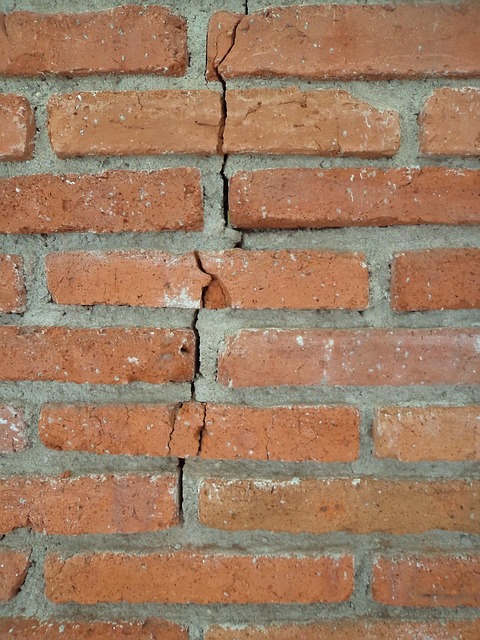Regular Foundation Inspection is vital for maintaining structural integrity and preventing costly repairs. These inspections detect issues early, like cracks, settlement, or foundation failures, by assessing soil conditions, construction methods, and building age. Homeowners can choose from various structural repair warranties, with Foundation Inspection coverage offering peace of mind against future foundation problems. A comprehensive inspection is crucial for filing claims, providing evidence of damage and repair needs. Understanding warranty exclusions and limitations ensures adequate protection. Proactive foundation checks annually by professionals save money and safeguard the longevity of properties.
In the realm of homeownership, structural repairs are an inevitable concern. Understanding the warranty behind these fixes is crucial for homeowners looking to protect their investments. This comprehensive guide explores the intricacies of structural repair warranties, focusing on the role of foundation inspection in claim processes. From identifying common causes of structural damage to navigating the types and key components of warranties, we delve into ensuring peace of mind. Homeowners can learn how a foundation inspection can prevent costly surprises and what steps to take when filing a claim, empowering them to make informed decisions regarding their home’s longevity.
Understanding Structural Damage and Its Causes

Structural damage can arise from a variety of sources, often requiring professional intervention for effective repairs. Causes range from poor initial construction practices to environmental factors like settlement, heave, or soil erosion. A thorough foundation inspection is crucial in identifying these issues early on, preventing more severe and costly damage down the line.
Regular assessments by qualified professionals play a pivotal role in maintaining structural integrity. They employ advanced techniques and tools to evaluate the condition of foundations, walls, and other critical components. By understanding the root causes of damage, homeowners and builders can select appropriate warranty coverage for repairs, ensuring peace of mind and long-term stability.
The Role of Foundation Inspection in Warranty Claims

A thorough foundation inspection plays a pivotal role in warranty claims for structural repairs. This initial step is crucial as it provides an accurate assessment of any existing issues or potential problems within a structure’s foundation. By employing advanced diagnostic tools and techniques, professionals can uncover subtle defects that might be invisible to the naked eye. Early detection through foundation inspections allows for prompt addressing of concerns, which can prevent minor issues from escalating into costly major repairs.
When conducting these inspections, experts consider various factors, such as soil conditions, construction methods, and age of the building. These insights help establish a benchmark against which potential deviations or anomalies in the structure’s integrity are measured. Regular foundation inspections not only facilitate warranty claims but also offer homeowners peace of mind, ensuring their investment is protected and any structural repairs are carried out effectively.
Types of Warranties for Structural Repairs

When it comes to structural repairs, several types of warranties are available to homeowners, each offering distinct benefits tailored to specific needs. One common option is the foundation inspection warranty, which covers issues related to the structural integrity of a home’s foundation. These warranties are typically offered by contractors and ensure peace of mind by guaranteeing against future problems that may arise from foundation flaws.
Another type is the more comprehensive structural repair warranty, covering various aspects beyond the foundation. This warranty can include repairs for issues like bowing walls, leaning chimneys, or misaligned structures. Such warranties often come with longer periods of coverage and provide homeowners with substantial protection against costly repairs in the future.
Key Components of a Comprehensive Structural Warranty

When considering a comprehensive structural warranty for your home, there are several key components that you should look out for to ensure thorough protection. One of the foundational aspects is a meticulous foundation inspection. This step involves an expert assessing the integrity of your home’s foundation, identifying any potential issues or defects that might go unnoticed otherwise. It covers not just the visible parts but also underground elements critical to the structural stability of your property.
Additionally, a quality warranty should include provisions for various structural repairs, such as those related to walls, roofs, and floors. It must clearly define what is covered, including preventive measures like regular maintenance checks and material replacements. Ensuring these components are in place guarantees that any unforeseen structural problems will be addressed promptly, providing peace of mind for homeowners.
Who Qualifies for a Structural Repair Warranty?

Anyone who owns a home with structural issues that require repairs is a potential candidate for a structural repair warranty. However, to be eligible, a thorough foundation inspection is typically required to assess the extent of the damage and determine the scope of necessary repairs. This step ensures that both the homeowner and the warranty provider have a clear understanding of what’s covered.
During the foundation inspection, professionals look for signs of cracks, settlement, or other structural failures in the basement, crawl space, or foundation walls. Based on these findings, a repair plan is created, and if the work falls within eligible categories as per the warranty company’s policies, coverage can be extended to protect against future issues related to these specific repairs.
Filing a Claim: A Step-by-Step Guide

Filing a Claim: A Step-by-Step Guide
The first step in filing a claim for structural repairs is to conduct or arrange for a thorough foundation inspection. This is crucial as it provides evidence of the damage and establishes the need for repair work. Engage a licensed professional to carry out this inspection, ensuring they document any issues with detailed reports and photographs. These will be essential when presenting your claim.
Once the inspection is complete, review your policy terms carefully. Understand what is covered under your warranty or insurance. Prepare a comprehensive list of repairs required, along with estimates from multiple contractors if possible. This demonstrates a thorough approach and aids in a faster settlement process. When ready, contact your insurance provider or warranty service, providing them with all relevant documentation to initiate the claims process.
Common Exclusions and Limitations in Structural Warranties

Structural warranties, while offering peace of mind, often come with certain exclusions and limitations that homeowners should be aware of before signing. One common exclusion is any damage caused by inadequate or improper maintenance, such as failing to address leaks or moisture issues in a timely manner. These warranties typically don’t cover problems arising from normal wear and tear or environmental factors like extreme weather events, soil instability (which may require a separate foundation inspection), or settlement of the structure.
Additionally, many warranty providers exclude repairs related to specific components like windows, doors, or flooring, as well as any work that doesn’t conform to local building codes or requires permits. It’s also important to note that structural warranties often have limitations on the timeframe in which claims can be made and the extent of coverage provided per incident. Understanding these exclusions is crucial to ensuring you’re adequately protected by your warranty.
Protecting Your Investment: Tips for Homeowners

Protecting your home’s structural integrity is a wise investment for any homeowner. Regular foundation inspections are a crucial step in maintaining your property’s value and safety. A professional foundation inspection can identify potential issues early on, from cracks in the walls to uneven floors, which could be signs of a deeper problem with your home’s foundation.
By catching these problems early, homeowners can prevent minor repairs from turning into costly renovations. It’s recommended to have an annual check-up to ensure any issues are addressed promptly. This proactive approach not only saves money but also ensures the longevity and stability of your home, providing peace of mind for years to come.
